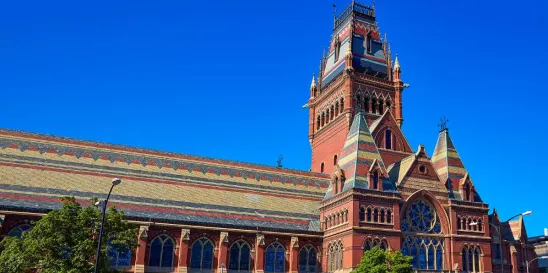Of late, Harvard has garnered an abundance of attention regarding the continued incumbency of its President. Despite widely criticized testimony before Congress and the publication of allegations of plagiarism, the Harvard Corporation recently unanimously reaffirmed its support for President Claudine Gay's continued leadership.
What exactly is the Harvard Corporation? Harvard claims to be the oldest corporation in the Western Hemisphere. Unlike modern corporations, however, it did not get its start by the filing of articles of incorporation. Harvard College dates its founding to an October 28, 1636 vote of the Great and General Court of Massachusetts ("The Court agreed to give 400£ towards a schoale or Colledge . . . ."(original spelling)). However, it was not until 1650 that the corporation was formed by this charter, which provides in part:
It is therefore Ordred and Enacted by this Courte and the Authority thereof, that for the purposes aforesayd and from henceforth that the said Colledge in Cambridge in midlesex in new England shalbe a Corporation consistinge of seaven persons (to witt) a praesident, five fellowes and a Treasurer or Burser. . . . And that the said seven persons or the greater Number of them, procuring the presence of the overseers of the Colledge, and by their counsell and consent shall have power and are hereby authorized at any time or times to elect a new praesident, fellowes or Treasurer so oft and from time to time as any of the said person or persons dy or be removed, which said praesident and fellowes for the time beinge shall for ever hereafter in name and fact be one body politicke and Corporate in law, to all intents and purposes, and shall have perpetuall succession, and shalbe called by the name of praesident and fellowes of Harvard Colledge . . . .
(original spelling). The President and Fellows are now often referred to as the "Harvard Corporation" or simply the "Corporation".
The 1650 charter establishes Harvard as a corporation. Does this mean that the "praesident and fellowes" owe fiduciary duties? According to the Harvard Corporation Governance Review Committee, they do:
Ever since [the 1650 charter], principal fiduciary responsibility for Harvard’s institutional well-being has been vested in the President and Fellows of Harvard College, more familiarly known as the Harvard Corporation.
Report of the Harvard Corporation Governance Review Committee Report to the University Community (Dec. 6, 2010). An interesting question would be who has standing to enforce any alleged breach of fiduciary duty by a member of the President and Fellows since the corporation has no shareholders.
Interestingly, Harvard has another oversight body - the Board of Overseers. This body was established in 1642 and is comprised of individuals elected by Harvard degree holders. The Harvard Corporation in contrast is a self-perpetuating board as set forth in the 1650 charter. The Board of Overseers' describes its principal responsibility as directing the visitation process which it describes as the "primary means for periodic external assessment of Harvard’s schools and department".



 />i
/>i

